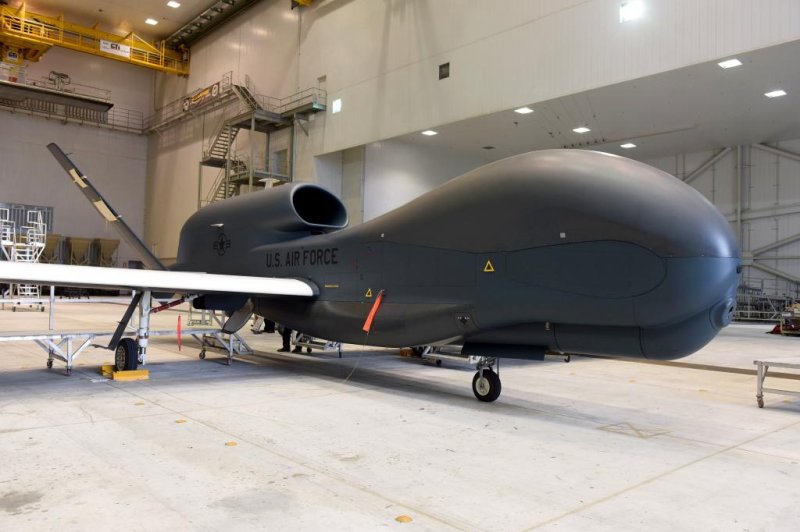Aug. 7 (UPI) -- Raytheon has received a $25.9 million contract for modifications and retrofitting of sensors on the Global Hawk Block 30 unmanned aerial vehicle, the Department of Defense announced on Friday.
Under the contract engineering work will be done for upgrades to the Enhanced Integrated Sensor Suite and retrofitting of the Enhanced Electro-Optical Receiving Unit on Global Hawks.















